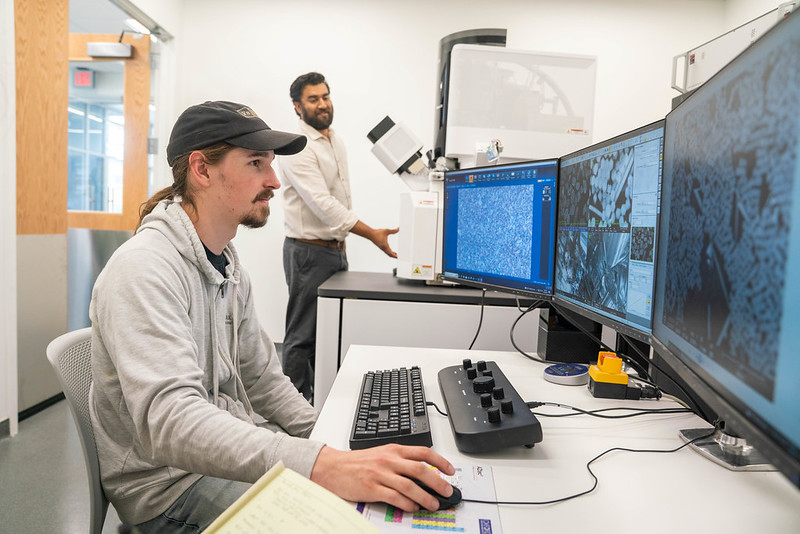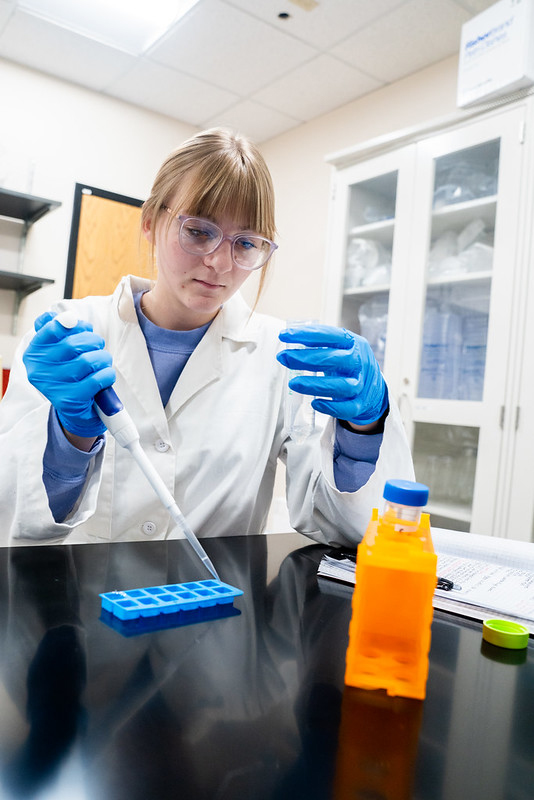South Dakota Mines Awarded Nearly $2 Million to Support Graduate Research in Advanced Materials

South Dakota Mines is taking bold steps to fuel the next generation of scientific breakthroughs. The university has received nearly $2 million from the National Science Foundation (NSF) to recruit and support graduate students pursuing innovative research in advanced materials for broad scientific and engineering applications.
The funding is part of a newly launched EPSCoR Graduate Fellowship Program, designed to support students who received honorable mention recognition in the prestigious NSF
Graduate Research Fellowship Program. Through this initiative, Mines will provide
these high-achieving scholars from across the nation with the opportunity to engage
in cutting-edge research at the forefront of materials science and technology.
support students who received honorable mention recognition in the prestigious NSF
Graduate Research Fellowship Program. Through this initiative, Mines will provide
these high-achieving scholars from across the nation with the opportunity to engage
in cutting-edge research at the forefront of materials science and technology.
This investment not only strengthens the university’s research capacity but also positions Mines as a key player in training future leaders in science and engineering.
“This is a tremendous opportunity for Mines,” said Maribeth Price, Ph.D., dean of graduate education. “These honorable mention students are incredibly talented, and this program allows us to attract top-tier students who might not have considered Mines otherwise.”
The students accepted for fellowships will work with Mines faculty across four graduate programs: nanoscience and biomedical engineering, chemical and biological engineering, chemistry, biology and health sciences, and materials and metallurgical engineering, which lead research and manage active grants in innovative materials.
Graduate student research spans a wide range of innovative topics, including biomaterials designed to deliver drugs more precisely and effectively for patients with cancer and other diseases; thin films that enhance the efficiency and sustainability of producing ammonia and hydrogen to boost crop yields and conserve resources; eco-friendly polymers that offer sustainable alternatives to petroleum-based plastics; and cutting-edge quantum materials with the potential to transform computing, communication, and sensing technologies.
“This fellowship will prepare students for impactful careers in industry or academia, positioning them to lead in developing the next generation of materials and technologies,” Price said.
Aside from ground-breaking, hands-on research, students will gain professional development experience and opportunities to work with multi-institutional research centers and industry partners across South Dakota.